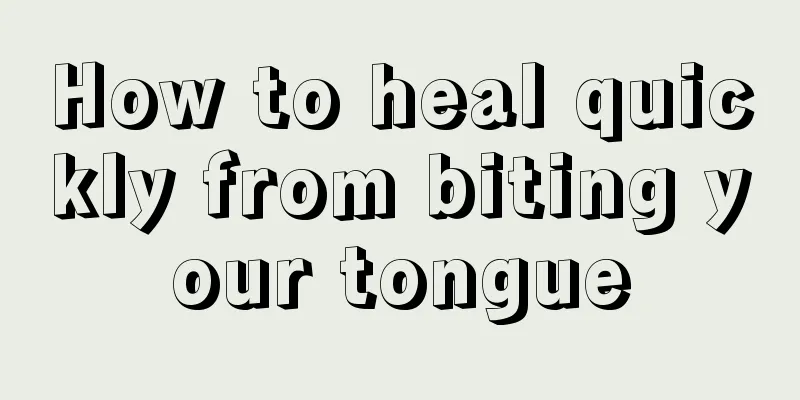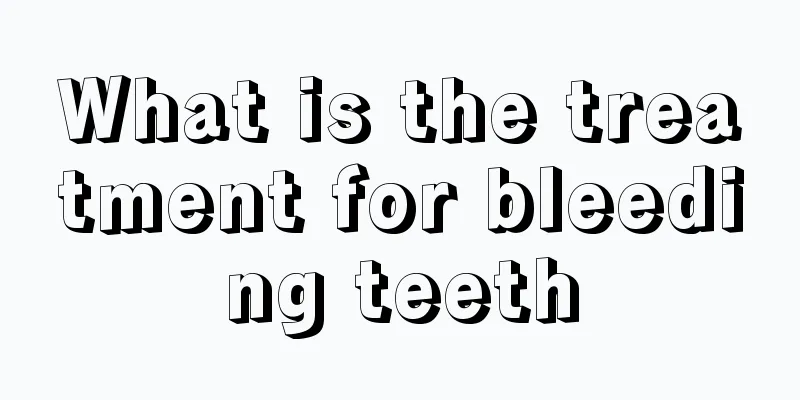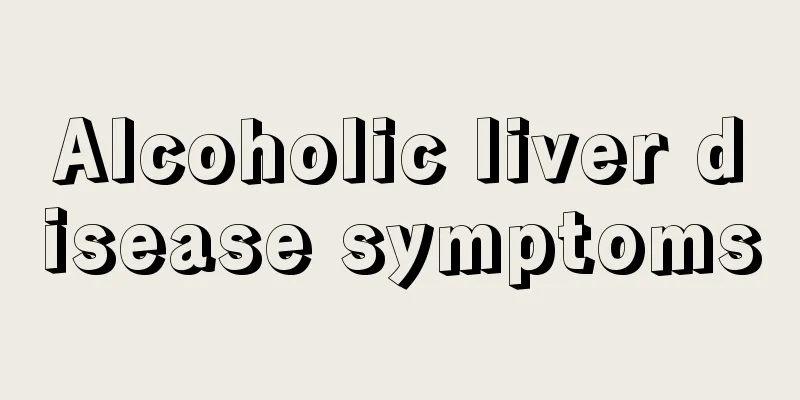How to heal quickly from biting your tongue

|
Many people accidentally bite their tongue when eating. After biting your tongue, be sure to treat it promptly to avoid infection at the wound site, which could lead to more serious oral problems. Generally speaking, after the tongue is bitten, you can choose to treat the wound by applying pressure to stop bleeding, gargling with salt water, gargling with hydrogen peroxide, etc. Here we will introduce these three treatment methods in detail! 1. Apply pressure to stop bleeding If the bite is bleeding, you must first apply pressure to stop the bleeding. The pressure from within the blood vessels causes the blood to flow out. Bleeding can be stopped by applying a pressure greater than the blood vessel pressure on the wound. Once the bleeding stops, the blood will clot. Additionally, applying compression can help reduce inflammation. You must: If you bite your tongue, keep it against the roof of your mouth. You can also press your tongue against your cheek. Apply ice to the bite (hold the ice cube intermittently until it melts completely). You can also apply pressure to the injured area with a clean cloth. 2. Rinse your mouth with salt water Salt water helps the bite heal faster and controls bacterial activity in the bite area. Salt absorbs water molecules, which has a penetrating and dehydrating effect, making the bitten area dry. Most bacteria cannot survive in a dry environment, so salt is important to keep bacteria under control and help promote wound healing. Here's how: Prepare 1 cup of warm water and 1 teaspoon of salt. Mix them together. Gargle with the salt water for 15 to 20 seconds, then spit it out. You can gargle with salt water three times a day (especially after meals) for three days in a row. Rinsing also helps remove food particles from the mouth, disrupts enzyme activity, and helps reduce swelling and pain. 3. Rinse your mouth with hydrogen peroxide The antibacterial effect of hydrogen peroxide helps control bacterial activity in the wound. The effervescent cleansing action of hydrogen peroxide removes debris and dead tissue from the wound surface. This helps the wound heal and protects the injured area from bacterial infection. In short, as long as you don't swallow hydrogen peroxide, it is an effective antibacterial agent. Here's how: Make a mouthwash by mixing equal parts 3% hydrogen peroxide and water. Place a small amount of hydrogen peroxide in your mouth, rinse your mouth thoroughly, and then spit it out. You can rinse your mouth twice a day for 3 consecutive days. You can also use a cotton swab to apply a small amount of hydrogen peroxide and water directly to the injured area. |
<<: What medicine to take for rotator cuff inflammation
>>: Treat hemorrhoids and internal hemorrhoids
Recommend
What causes hypokalemia
Hypokalemia is a common disease. The main cause o...
Which cancers are painless? What do you need to check for bladder cancer diagnosis?
When it comes to which cancers are painless, we m...
What are the symptoms of sterno-clavicular arthritis
The occurrence of sterno-clavicular arthritis has...
Nursing of intestinal fistula in advanced colon cancer
The occurrence of intestinal fistula has a great ...
Will primary liver cancer be hereditary?
Will primary liver cancer be hereditary? The mort...
Can I soak my feet with Chinese medicine residue?
Drinking Chinese medicine is one of the methods t...
What to do if you are allergic to alcohol and your body itches? 3 methods that work quickly
For people who are allergic to alcohol, itching i...
How can girls detect ovarian cancer
Ovarian cancer requires specialized medical exami...
After the tumor is removed, be careful not to pay attention, or the tumor will come back!
As we all know, tumors seriously threaten human h...
Can pneumoconiosis be cured? Treatment principles to know
Pneumoconiosis is also called black lung disease....
Excessive sweating can easily cause hair loss
Hair has a close relationship with the body. If y...
What shoes are suitable for girls in autumn
Autumn is a season of alternating heat and cold. ...
What are the symptoms of advanced lymphoma
Lymphoma is a common malignant tumor with a high ...
What anti-inflammatory medicine should I take for tooth inflammation
Gingivitis is a common symptom, which often cause...
How long can you live with advanced prostate cancer? Four methods to extend the life of patients with advanced prostate cancer
Patients with prostate cancer may experience seve...









